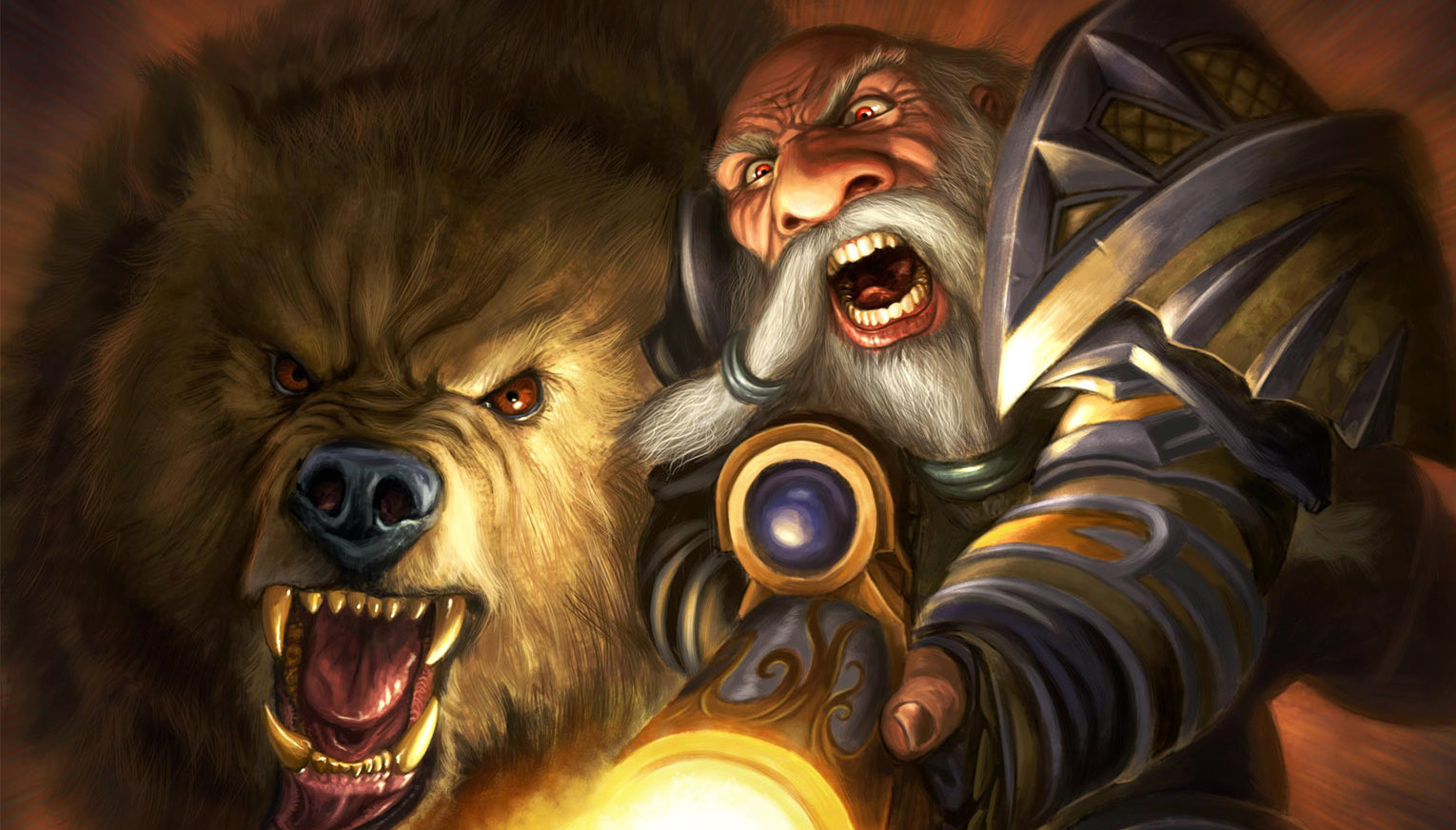
RNG is not out of control
Cards with random effects—or ‘RNG’, which stands for Random Number Generator—have been Hearthstone’s hallmark going back all the way to beta. Between randomly distributed damage, randomly summoned minions, and other effects applied to random targets, it can seem like games are often decided by so much randomness that there is little room left for players to show their skill.
This is exactly backwards. A superior understanding of probability is what enables pros like Ostkaka, Xixo, Firebat, and Jab to place at the top of ladder and tournaments practically every season. These players are no more lucky than anybody else, but they are experts at taking calculated risks, so when they do get lucky, it wins the game every time. The real skill is not in the top decked Blade Flurry for lethal: it’s in the Eviscerate played on the opponent’s face the turn before, despite a threatening board, knowing that four extra damage will enable a ‘lucky’ draw to win the game.
The consistency of top players is borne out by statistics. The dramatic drop in player numbers at high ladder ranks is consistent with a deeply skilled game. If Hearthstone were actually overrun by randomness, we would not see the same players outperforming the field again and again. RNG is not the reason you can’t climb the ladder.
Here are some other common misconceptions about the game, and examples of thinking that is holding players back from improving..
Hearthstone is not an easy game
Despite the statistical evidence that Hearthstone is difficult and skilled, many pros do themselves a disservice by insisting it’s an easy game. Part of the problem is that the game itself provides very little feedback to help people improve, because it’s designed to make new players feel powerful and comfortable. As a result, players that want to get good often feel helpless. This is in stark contrast to other competitive games, like CS:GO, where new players are immediately aware of which mechanical skills they need to practice.
When Hearthstone games go wrong, an early and seemingly inconsequential decision is usually to blame. A Hunter vs Hunter match can be lost on turn two simply by playing a Knife Juggler instead of a Mad Scientist; they are both strong 2-mana minions, but the Juggler’s death has no impact beyond whatever it costs to remove, while the Mad Scientist deploys a trap that can protect minions played the following turn, potentially securing board control for the rest of the game. While obvious to an experienced player, there is no reason a new player looking back would notice this mistake because the game gives no prompting. At higher levels, the same issue holds true for more esoteric decisions.
Without constructive criticism from the Hearthstone client, it’s unsurprising that many players end up blaming a lack of balance and abundance of RNG for their failure to climb the ladder. It doesn’t help that few people can emotionally grasp that a long streak of, say, 15 winning or losing games may still be just meaningless variance, which will even out in a sample size of several hundred games.
Keep up to date with the most important stories and the best deals, as picked by the PC Gamer team.
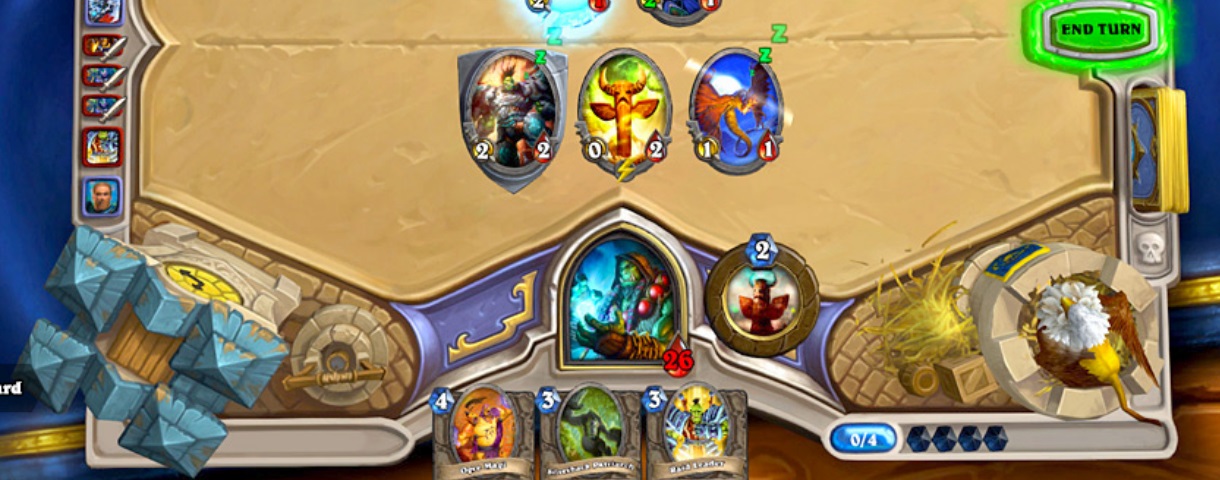
There is no virtue in playing weak decks
Common sense dictates that in a game like Hearthstone there will always be one or two decks that are dominant. Way back when it was Murloc Warlock, then Buzzard-Unleash Hunter, then Miracle Rogue, then Zoo, then Undertaker Hunter, Sea Giant Shaman, Face Hunter, Midrange Paladin, Combo Druid, Patron Warrior… and on and on. Right now it’s Secret Paladin. Good strategies are frustrating to play against. That’s literally part of what makes them good. But don’t confuse your frustration with losing as proof that the game is badly balanced. I see so many players outraged that they can’t win consistently, who also decry the strongest decks in the game because they don’t like the play style, or feel that choosing to play as Aggro Druid or Secret Paladin is in some way a moral failure. Trust me, it’s far more fun to play strong decks and win than to avoid them and complain.
Strategic variety is healthy
The current Hearthstone ladder is more balanced and diverse than most seasons I can remember since beta. A good player can win with practically any sound strategy (which can be frustrating in itself, since it isn’t obvious what deck a weaker player should use). That said, tempo decks, which focus on playing the strongest minion possible every turn and trading for incremental board advantage, are noticeably stronger than other archetypes right now. Secret Paladin is the biggest example of a powerful deck that uses this strategy, but Dragon Priest, Zoo, and Druid also fall into the same category.
The prevalence of tempo and midrange decks over aggro, control, and combo was the focus of much community complaint in the run up to last week’s BlizzCon World Championships, but we shouldn’t be surprised. Remember when face aggro Hunter was the best deck in the game? Or when combo Rogue or Warrior was the top deck? The community DEMANDED that Blizzard make the game more interactive on the board. And imagine if a true control deck were strong—I mean like Fatigue Mage, not just a tempo deck with a few expensive minions—the community would be furious about all the long, boring, frustrating games. Tempo and midrange decks are all that is left because Blizzard listened to the complaints. If we want a more stylistically diverse game, we need to become more mature as a community about strategic variety.
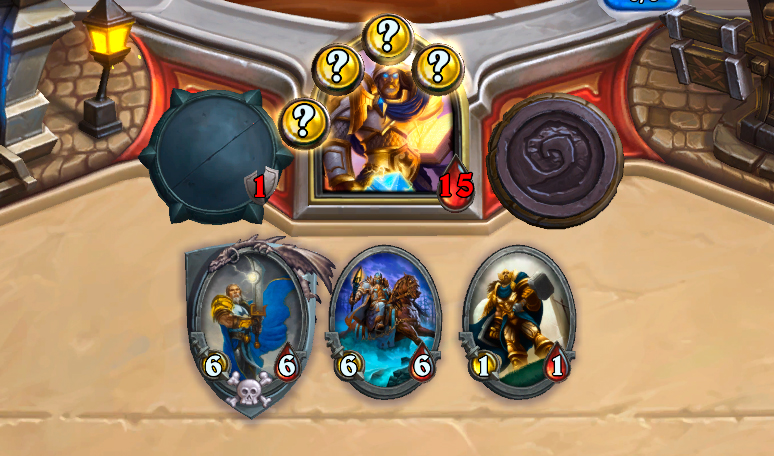
You need to beat strategies, not specific cards
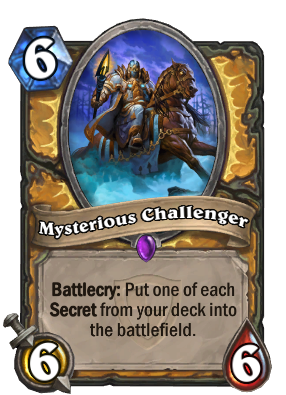
Mysterious Challenger is the strongest 6-mana minion ever printed. Like Dr. Boom, there is no single card that can deal with both its body and its battlecry, nor is there another card that can go toe-to-toe with it for the same cost. The Secret Paladin deck, supercharged by Mysterious Challenger, is particularly oppressive at lower ladder ranks, due to the relative simplicity of piloting the deck compared to the complexity of defeating it.
Going into BlizzCon, I expected that Blizzard would announce some five- or six-mana threats that would compete with the power level of Mysterious Challenger. That didn’t happen, and in fact Secret Paladin got some new potentially strong cards in Anubisath Sentinel and Keeper of Uldaman.
Nonetheless, I am cautiously optimistic. Instead of encouraging other classes to match Secret Paladin with minions cost-for-cost, duplicating the same tempo strategy, Blizzard has provided tools that fit in removal-focused control decks. Aggro decks like Face Hunter already do well against Secret Paladin by setting up a winning position on turns 1-5. The League of Explorers adventure may enable control decks to do the same thing.
Excavated Evil clears the board a turn before Mysterious Challenger can come down, and sometimes gives the tempo player a useless card draw, a momentum-halting one-two punch for Priests facing Secret Paladins, aggressive Druids, and Warlock Zoos. Cursed Blade, while making Warriors vulnerable to Face Hunter and other fast aggression, also gives them a tool to start clearing enemy minions a turn earlier than was before possible, stalling the early snowball that wins so many games for Secret Paladin. Indirect tools like these are more healthy for Hearthstone in the long run than community's hoped-for hard counter to Mysterious Challenger.
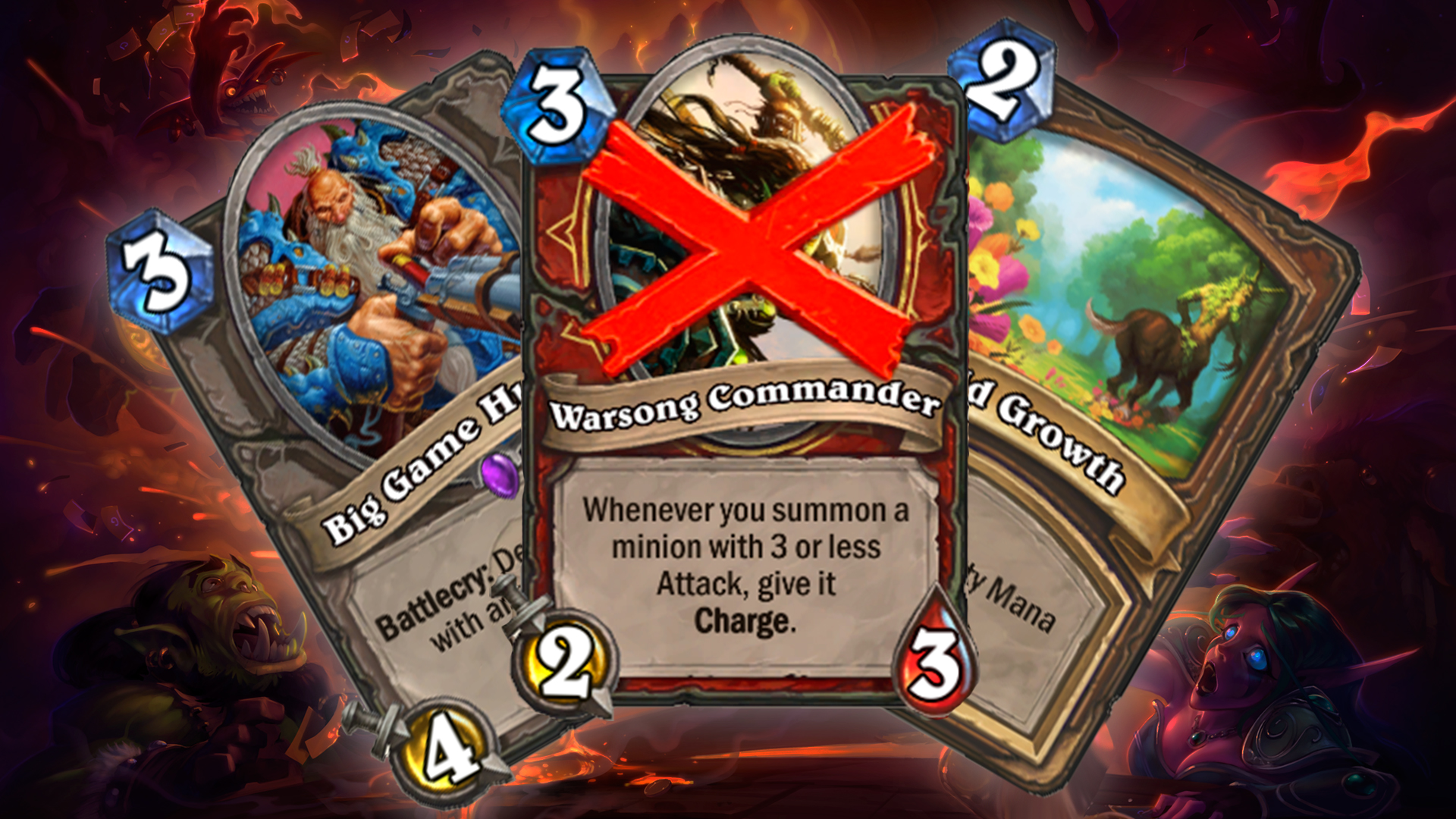
Nerfing strong cards is bad
It is by now reflex for the community to ask Blizzard to nerf the most powerful decks, but I think this is backwards. Hearthstone doesn't suffer from too many overpowered cards, it suffers from too few truly powerful cards. Powerful cards are exciting and fun! Nobody plays collectible card games so they can drop vanilla minions on curve. They do it so they can discard their whole deck on turn 2, then pull the biggest, scariest monster in the game back from the dead just before their opponent would kill them! I say bring on the power creep, so long as every class gets some.

PC Gamer Pro is dedicated to esports and competitive gaming. Check back every day for exciting, fun and informative articles about League of Legends, Dota 2, Hearthstone, CS:GO and more. GL HF!


